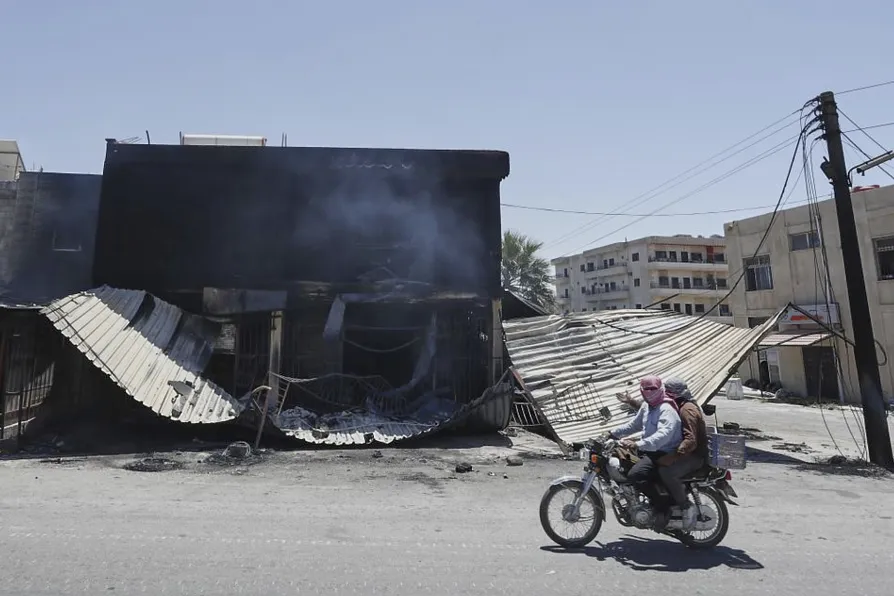
 Syrian citizens ride in front of a shop that was burned during clashes between Syrian government forces and Druze militias on the outskirts of Sweida city, southern Syria, July 16, 2025
Syrian citizens ride in front of a shop that was burned during clashes between Syrian government forces and Druze militias on the outskirts of Sweida city, southern Syria, July 16, 2025
SYRIAN government forces largely withdrew from the southern province of Sweida today, following days of clashes with militias linked to the Druze minority.
While the truce between the Druze armed groups and government forces appeared to be holding for the most part, state media reported that Druze militants had launched revenge attacks on communities of Sunni Bedouins, leading to a wave of displacement.
Bedouin clans had fought alongside government forces against the Druze groups.
Druze leaders and Syrian government officials reached a ceasefire deal on Wednesday, mediated by the United States, Turkey and Arab countries.
Under the agreement, Druze factions and clerics have been appointed to maintain internal security in Sweida, ininterim Syrian President Ahmad al-Sharaa said in an address broadcast early today.
The fighting had threatened to unravel Mr Sharaa’s consolidation of power and brought further military intervention by neighbouring Israel, which on Wednesday bombed the Defence Ministry headquarters in central Damascus.
Israel said it was acting to protect the Druze religious minority.
Convoys of government forces started pulling out of the city of Sweida overnight as Syrian state media said that the withdrawal was in line with the ceasefire agreement and that the military operation against the Druze factions had ended.
Syrian television channel al-Ikhbariya said “tens of families” of Bedouins had fled following revenge attacks on the outskirts of the Druze-majority province.
The British-based Syrian Observatory for Human Rights said that Druze factions had entered several Bedouin villages.
It remains unclear whether the ceasefire will hold and whether this will halt further Israeli interference in Syria.
A previous agreement reached on Tuesday quickly broke down after being dismissed by prominent Druze cleric Sheikh Hikmat al-Hijri.
A Turkish official said today that Foreign Minister Hakan Fidan and intelligence chief Ibrahim Kalin had held a series of diplomatic and security contacts to de-escalate the clashes.
They worked with the US special envoy for Syria, Israel and regional officials and leaders, including Lebanese Druze leader Walid Jumblatt, said the official on condition of anonymity.
The escalation in Syria began with tit-for-tat kidnappings and attacks between local Sunni Bedouin tribes and Druze armed factions in Sweida province.
Government forces that intervened to restore order clashed with the Druze militias but also in some cases attacked civilians.
Mr Sharaa vowed to punish the perpetrators, saying: “We are committed to holding accountable those who wronged our Druze brethren” and describing the Druze as an “integral part of this nation’s fabric” who are under the protection of its laws and justice.













